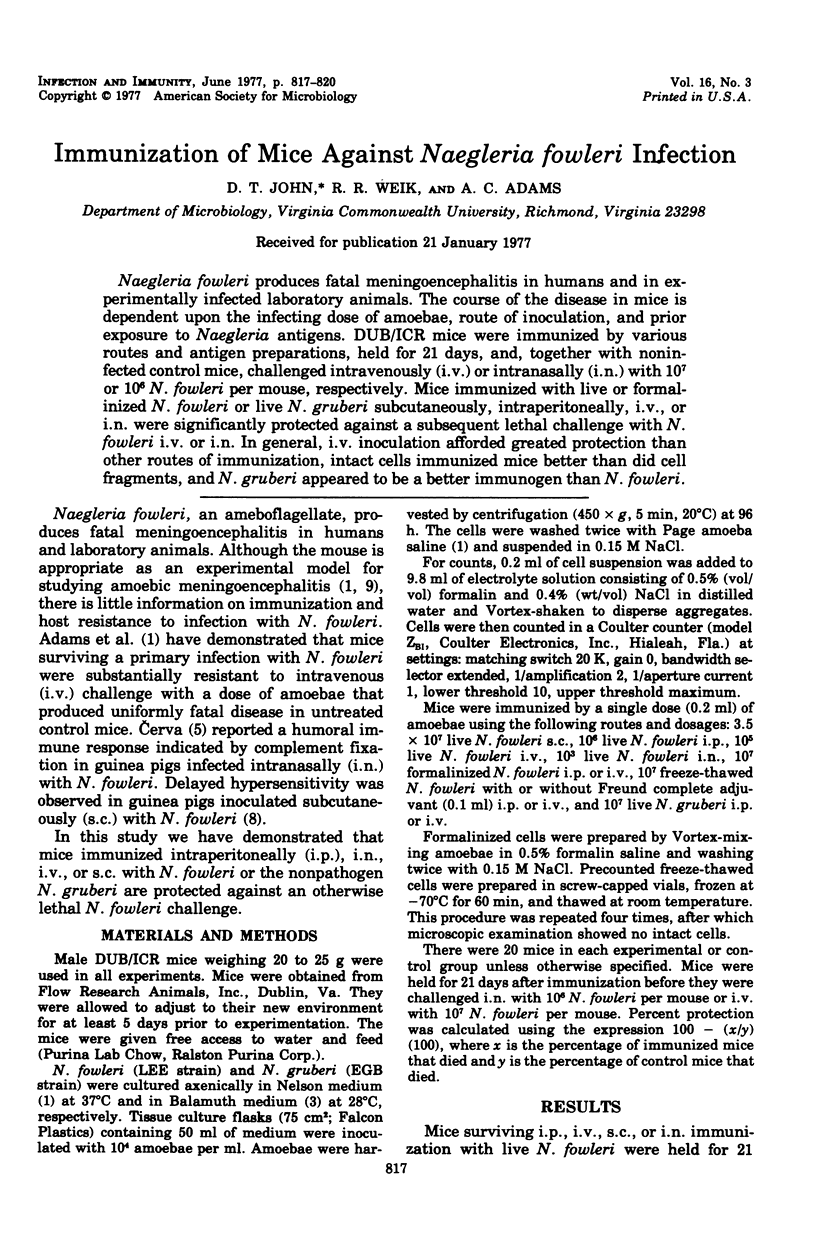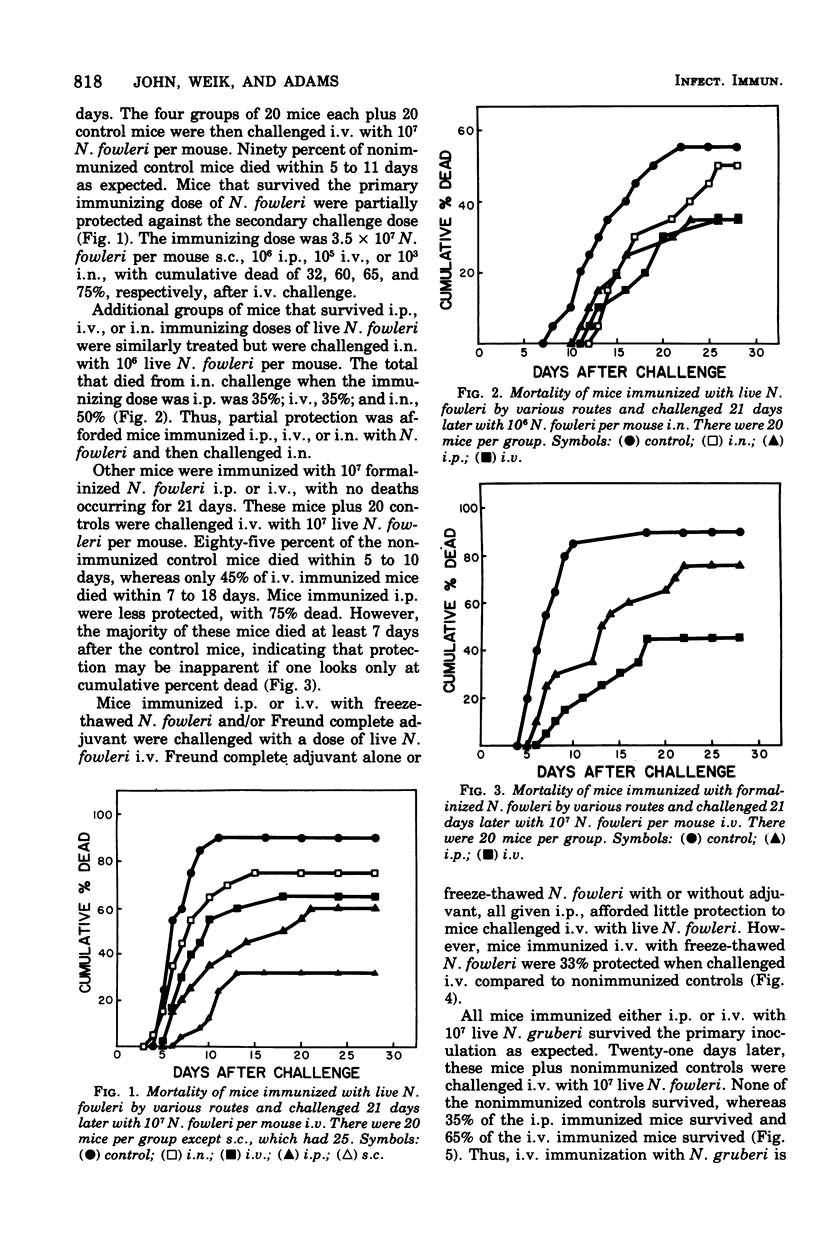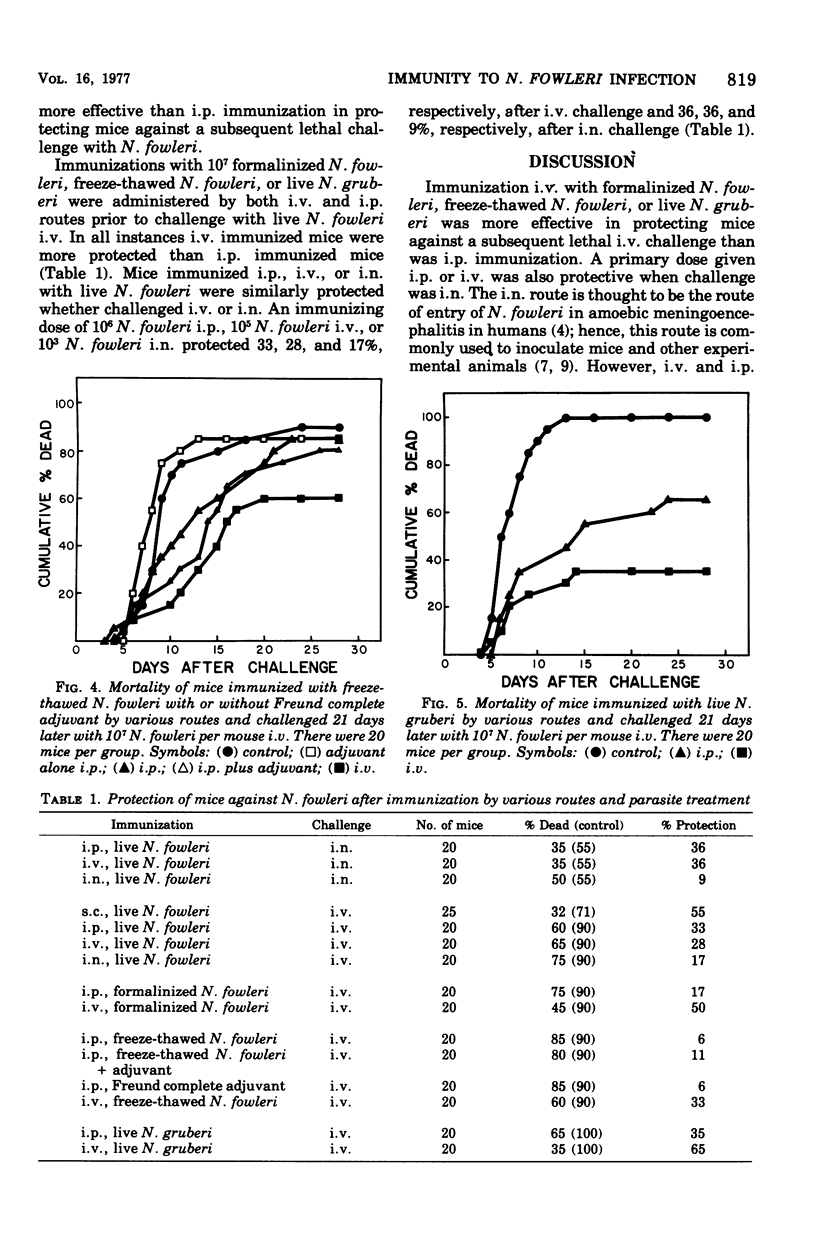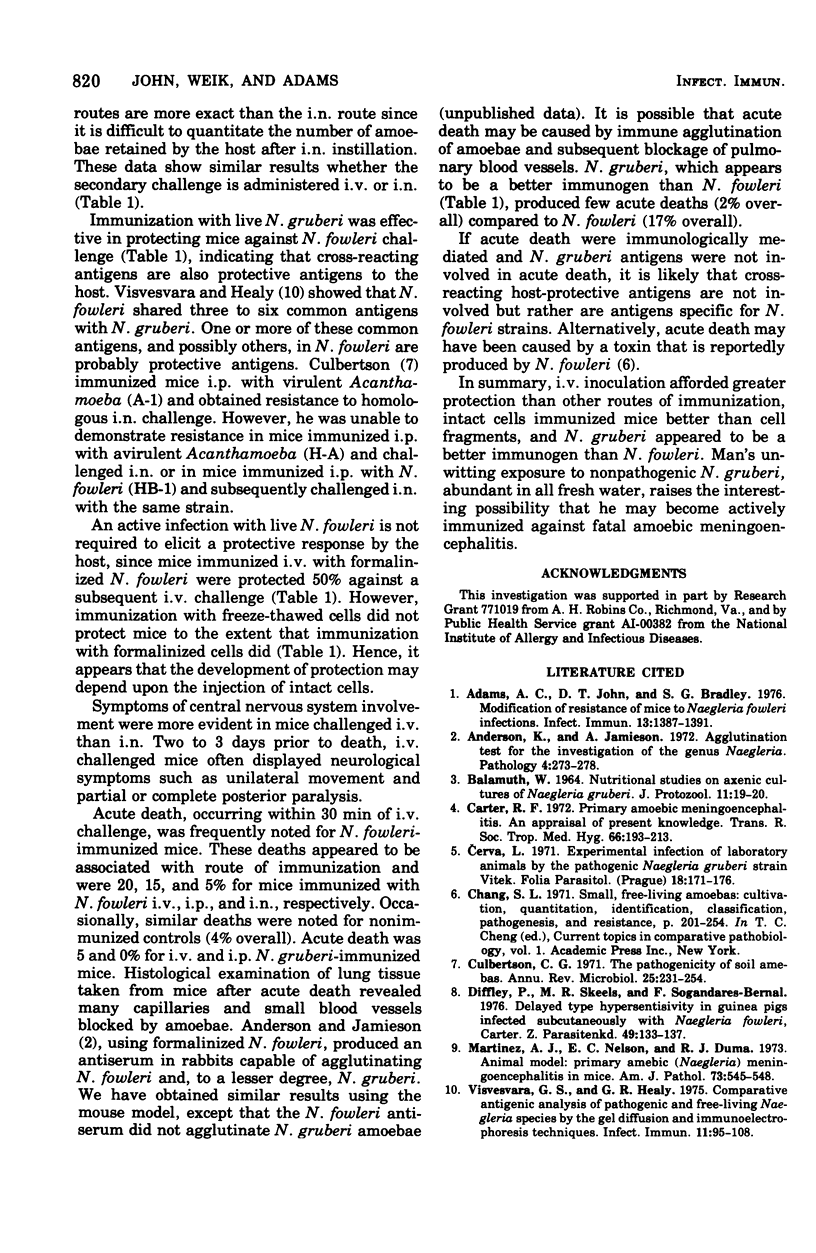Abstract
Naegleria fowleri produces fatal meningoencephalitis in humans and in experimentally infected laboratory animals. The course of the disease in mice is dependent upon the infecting dose of amoebae, route of inoculation, and prior exposure to Naegleria antigens. DUB/ICR mice were immunized by various routes and antigen preparations, held for 21 days, and, together with noninfected control mice, challenged intravenously (i.v.) or intranasally (i.n.) with 10(7) or 10(6) N. fowleri per mouse, respectively. Mice immunized with liver or formalinized N. fowleri or live N. gruberi subcutaneously, intraperitoneally, i.v., or i.n. were significantly protected against a subsequent lethal challenge with N. fowleri i.v. or i.n. In general, i.v. inoculation afforded greated protection than other routes of immunization, intact cells immunized mice better than did cell fragments, and N. gruberi appeared to be a better immunogen than N. fowleri.
Full text
PDF



Selected References
These references are in PubMed. This may not be the complete list of references from this article.
- Adams A. C., John D. T., Bradley S. G. Modification of resistance of mice to Naegleria fowleri infections. Infect Immun. 1976 May;13(5):1387–1391. doi: 10.1128/iai.13.5.1387-1391.1976. [DOI] [PMC free article] [PubMed] [Google Scholar]
- Anderson K., Jamieson A. Agglutination test for the investigation of the genus Naegleria. Pathology. 1972 Oct;4(4):273–278. doi: 10.3109/00313027209068953. [DOI] [PubMed] [Google Scholar]
- Carter R. F. Primary amoebic meningo-encephalitis. An appraisal of present knowledge. Trans R Soc Trop Med Hyg. 1972;66(2):193–213. doi: 10.1016/0035-9203(72)90147-2. [DOI] [PubMed] [Google Scholar]
- Cerva L. Experimental infection of laboratory animals by the pathogenic Naegleria gruberi strain Vítek. Folia Parasitol (Praha) 1971;18(2):171–176. [PubMed] [Google Scholar]
- Chang S. L. Small, free-living amebas: cultivation, quantitation, identification, classification, pathogenesis, and resistance. Curr Top Comp Pathobiol. 1971;1:201–254. doi: 10.1016/b978-0-12-153401-1.50010-7. [DOI] [PubMed] [Google Scholar]
- Culbertson C. G. The pathogenicity of soil amebas. Annu Rev Microbiol. 1971;25:231–254. doi: 10.1146/annurev.mi.25.100171.001311. [DOI] [PubMed] [Google Scholar]
- Diffley P., Skeels M. R., Sogandares-Bernal F. Delayed type hypersensitivity in guinea pig infected subcutaneously with Naegleria fowleri Carter. Z Parasitenkd. 1976 Apr 30;49(2):133–137. doi: 10.1007/BF00382420. [DOI] [PubMed] [Google Scholar]
- Martinez A. J., Nelson E. C., Duma R. J. Animal model of human disease. Primary amebic meningoencephalitis, Naegleria meningoencephalitis, CNS protozoal infection. Am J Pathol. 1973 Nov;73(2):545–548. [PMC free article] [PubMed] [Google Scholar]
- Visvesvara G. S., Healy G. R. Comparative antigenic analysis of pathogenic and free-living Naegleria species by the gel diffusion and immunoelectrophoresis techniques. Infect Immun. 1975 Jan;11(1):95–108. doi: 10.1128/iai.11.1.95-108.1975. [DOI] [PMC free article] [PubMed] [Google Scholar]


